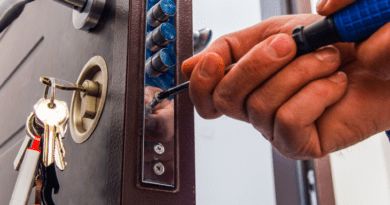Pros and Cons of Collecting Antiques
People collect antiques for various reasons. Some of these are its aesthetics, historical, monetary, and sentimental value. Although some may collect antiques as a hobby, however, they very seldom buy anything.
Not sure if it’s worth collecting antiques? You’re in the right place. Whether you are a seasoned antique collector or a beginner, you should know the pros and cons of collecting antiques.
In this article, we’ll discuss the meaning of antiques, helpful tips for choosing antiques for your home, and the pros and cons of collecting antiques.
What is an Antique?
An antique is any object that is over 100 years old. This is the definition used by most reputable dealers, though you’ll often find people trying to pass off objects that are 30, 40, and 50 years old as antiques.
These objects – anything over 20 years old but not quite 100 years old – are technically classified as “vintage.”
Vintage items still have value but are generally less valuable than antiques. This article will further focus on how to determine the value of an antique object as well as the pros and cons of collecting antiques.

Main Tips Before Buying Antiques For Your Home
An antique’s value is determined by a number of factors, including age & historical significance, material, condition, and authenticity.
Age & Historical Significance
The older, the better when it comes to antiques, so long as it has been preserved well.
Historically and culturally significant pieces, like a silver plate that belonged to an ancient king, will obviously hold a higher value than a gold plate belonging to an American family a hundred years ago, even if they look similar! This is why it’s always recommended to get antiques appraised by an expert before finalizing the purchase or sale.
Material
The materials finish, and decorative styles that compose and adorn your antique are the telltale signs of its age. Certain trends were popular during various time periods and in different regions, so studying up on them will help you ascertain an antique’s value.
If you’re appraising an antique silver cup, for instance, you’ll look to see if it’s made of genuine silver or if it’s just silver-plated (meaning only the outer layer is made of silver). Beyond that, looking for hallmarks on the bottom or back of the item will give clues as to the piece’s manufacturer and the time period in which it was made.
Condition
The condition of the item is a major factor in its value, as damages, repairs, or signs of wear can greatly reduce its worth. Collectors want to display the item – if it has flaws, this reduces the appeal and thus tarnishes the value.
There is no official or standardized grading system for antiques as a whole. Grading is subjective and often based on personal opinions and experiences of the appraiser or collector.
However, there are widely accepted standards and practices within certain niche communities of collectors and appraisers, such as those for antique coins, stamps, and sports memorabilia, where certain criteria and terminology like “mint condition” are commonly used to describe the physical quality of items.
Authenticity
Collectors will want to verify that the antique is genuine and not a reproduction – this is because people put a tremendous value on a piece being original or unique. If there are tens of thousands of copies of an antique in the wild, it’s comparatively easy to get and thus doesn’t carry as much value.

Pros and Cons of Collecting Antiques
Before you start your own antique collection, it’s important to be aware of both the pros and the cons of beginning this hobby of sorts.
Pros of collecting antiques:
- Investment potential: Antiques have the potential to appreciate in value over time, making them a wise investment for some collectors. Antique silver is one category of antique that is known for maintaining and accumulating value over long periods of time.
- Historical value: Antiques have a unique connection to history and can provide insight into different cultures and ways of life.
- Aesthetic appeal: Antiques often have a timeless beauty and charm that makes them visually appealing and adds to the overall décor and visual aesthetic of a home.
- Personal fulfillment: Collecting antiques can be a source of personal satisfaction and enjoyment, especially for those who have a passion for history and art.

Cons of collecting antiques:
- High cost: Antiques can be expensive, especially rare and high-quality pieces, making it difficult for some collectors to afford.
- Storage and maintenance: Antiques often require careful storage and maintenance to preserve their condition and value.
- Lack of standardization: The grading and evaluation of antiques is subjective, with no standardization in the industry, making it difficult for some collectors to determine the value and authenticity of items.
- Market fluctuations: The value of antiques can fluctuate greatly depending on market conditions and demand, making it difficult to predict their worth over time.
- Counterfeits and reproductions: Antiques can be difficult to authenticate, and collectors must be aware of the risk of purchasing counterfeit or reproduction items.
You can do it too!
Overall, collecting antiques requires research, patience, and a careful evaluation of the potential benefits and drawbacks. It is important for collectors to be knowledgeable about the market and to seek the advice of trusted expert appraisers to help guide them in their purchasing decisions.
Because of the many disparities between opinions and the fact that there is no official grading system, it’s always recommended to get multiple consultations for each antique item. However, the benefits to collecting are numerous and there’s never a better time to start than right now!



